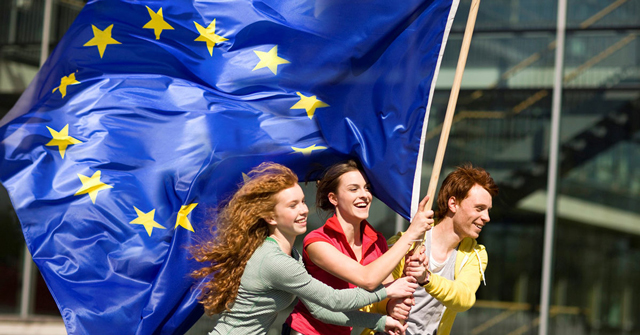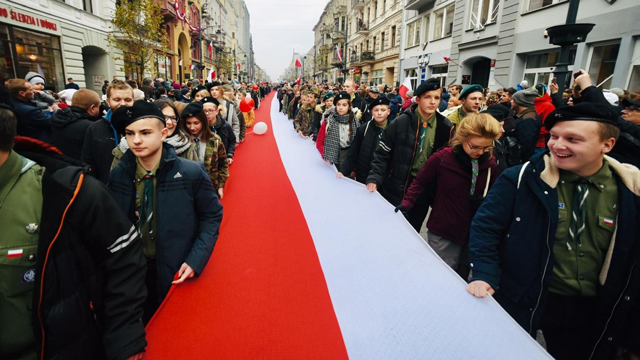Profit №_12_2023, decembrie 2023
№_12_2023, decembrie 2023
European freedom between Russia and Germany

An essay by Polish historian and writer Prof. Wojciech Roszkowski
"Freedom and independence seem synonymous, except that the former is more readily associated with personal freedom, the latter with states or nations. The fundamental question we are faced with today is whether the two represent a good in itself or a means to an end. But to understand freedom correctly, we must first differentiate between its positive and negative kind. Negative freedom means "freedom from" restrictions; positive one means "freedom to" do something. Contemporary liberalism has followed the British historian of ideas Isaiah Berlin in maintaining that positive freedom leads to coercion. Berlin warned that states restrict freedom in order to pursue a peculiar vision of the common good, like the "good" pursued by Nazism and Communism, and that, consequently, adopting values as the objective of actions puts a limit on freedom. However, Berlin’s vicious circle of freedom ignores the concepts of morality and conscience. The Christian understanding of "freedom to" differentiates between what is "righteously", "usefully" and "delightfully" good (bonum honestum, bonum utile and bonum delectabile, respectively). The last two may pose a threat to freedom if they come at the cost of other people, but righteous good is free of that danger. For instance, it is righteous to treat sick people or educate children even though, naturally, both activities may be performed with varying degrees of competence. "I have the right to do anything, but not everything is beneficial. I have the right to do anything, but I will not be mastered by anything". (1 Cor. 6:12) These words of St. Paul lie at the foundation of the Christian understanding of freedom.
Another question is whether independence is a good in itself or a means to achieve some objectives of a community, and also whether that community is ethnic or civic in nature. In any case, independence of a community, whether national or civic, just like personal freedom, should serve some end. Its objective should be to ensure the prosperity and spiritual development of the citizens as well as make use of their talents. In other words, it should contribute to the achievement of the "righteous good". Otherwise, it becomes useless or may turn into a dangerous tool when married with aggressive nationalism. In the history of the countries covered by the Three Seas Initiative the concepts of state and nation were often separate, which makes the answer to the question posed in the title highly complicated. The sketchy nature of this article may lead to misunderstandings, but a more thorough treatment of the subject would require a whole book. Those who want to find out more are advised to consult a book I am now preparing entitled Trójmorze kultur [Cultures Between the Three Seas].
In the case of Austria the word "freedom" can have lots of meanings. It may refer to the separation of the neutralised Austrian state from the Third Reich after WW2 or the rejection of Hitler’s Austrian origin and the acceptance of Anschluss in 1938; but it may also bring back the memories of the glorious days of the Habsburg dynasty which reigned over the many nations in the region.
The Poles should have no doubts that an independent state is an important condition for the healthy development of the nation. However, throughout their long history, they did not only prosper as privileged nobility, but also knew how to shape their identity under foreign rule.

The memory of Polish culture in the territories of today’s Lithuania, Belarus and Ukraine presents a challenge to Poland’s relations with these states. There is a difference between the attachment to freedom felt by the generation of Poles who lived in 1918, paid for independence with their blood, and rebuilt the state as the Second Polish Republic, and the sometimes complacent conviction of people living today according to which independence can come cheap. Communism made it crystal clear to the Poles how restricted they were by geopolitics, even though the insurgent tradition is still very much present in Poland as is the perennial question of whether "to fight or not to fight" for freedom against all odds. The Poles also resist current secularisation tendencies given that, in Poland, the Catholic Church has always supported the cause of freedom, a recent example of which was the pontificate of John Paul II.
The Hungarians are a specific case among the Three Seas Initiative nations. The barbaric 9th- century raids of the historical Magyars ended with the Christianisation of Hungary symbolised by St Stephen wearing his characteristic crown. The multiethnic Kingdom of Hungary included the communities of Slovaks, Croats or Transylvanian Romanians who struggled to carve out a bit of freedom for themselves. The history of this kingdom when it was ruled by the Habsburgs up to the reforms of 1867 resembles to a certain extent the Polish partitions. The Treaty of Trianon of 1920 under which Hungary was deprived of its control over Slovakia, Croatia and Transylvania, is treated by the Hungarians as a tragedy that they find difficult to accept.
Among the Baltic peoples the word "freedom" also evokes various associations. Before 1918, Estonians and Latvians did not have their own statehood. Even so, the sense of patriotism in Estonia and Latvia is now nourished by the memory of how their ancestors resisted the domination of the German nobility and Russian authorities up until WW1 and then later of Soviet communism which caused enormous demographic and cultural damage. As for Lithuania, a country that, in the 14th century, created the Grand Duchy extending as far as Ruthenia, the problem is the Polonisation of the local nobility in the state of the Jagiellons. It is well symbolised by the poet Adam Mickiewicz who wrote the words "Lithuania, my homeland..." in Polish. However, the mistrust felt by the Lithuanians towards the Poles has now abated in the face of the common Russian threat.
The word "freedom" also sounds different to the Czechs and the Slovaks, the former having freed themselves of Austrian domination, the latter of the Hungarian. Additionally, in the case of the Slovaks, one needs to take account of their emancipation from the more numerous and economically advanced Czechs. All things considered, both nations have coped quite well with these problems.
The identity of present-day Romanians is well reflected by the title of Adam Burakowski’s book devoted to the topic: Kraj smutny pełen humoru [A Sad Country Full of Humour]. Liberated from the terrible communist dictatorship, Romanians may refer back to the success of creating Greater Romania in 1918 which comprised the Old Kingdom as well as Transylvania, Bessarabia and Bukovina, but they still argue about their ethnic origins and the beginnings of statehood. Western knowledge of the history of Moldova and Wallachia is clouded by scary stories about the brutality of Duke Vlad Drakula, even though Medieval practices in other regions of Europe and beyond were no less cruel.
In Bulgaria, freedom mainly brings associations of being liberated from the six-hundred-year- long Turkish rule while managing to preserve the rich spiritual and religious culture of the Orthodox Church. Nevertheless, Bulgarians are proud of the fact that, before the 14th-century Turkish invasion, they had a powerful state that could compete with the Byzantine Empire. It would be a blunder to recall that the first Bulgarian state was founded by invaders of Turkish origin who came to the Balkans from the area around the river Kama in the 7th century and were then Slavicised.
Croats and Slovenians may also draw on the history of the early Medieval states that existed in their territories, notwithstanding the fact that they were later colonised by the Hungarians and the Austrians, respectively. Thus, in Croatian and Slovenian, "freedom" is about throwing off foreign domination as well as overcoming the legacy of Yugoslavia’s home-grown version of Communism.
Little is known in the West of the tradition of freedom existing in Ukraine. The country cherishes the memory of Ruthenia’s Norman roots that have been mentioned recently by the Ukrainian president Volodymyr Zelenskyy in his speech before the Norwegian parliament. Contemporary Ukraine is born out of the tradition of Cossack uprisings against the Tartars and the Polish-Lithuanian Commonwealth. Confronted with the might of the Commonwealth and the neighbouring Turkey, the Cossacks never managed to win independence and even made a fatal strategic error of entrusting their future to Russia under the Pereiaslav Agreement signed in 1654. In the following centuries, eastern Ukraine was Russified, while its western lands were taken over by the Habsburgs after the fall of the Commonwealth, becoming Galicia. Ukrainians were permitted to develop their national culture under Austrian government, especially in the second half of the 20th century, but were persecuted in the part controlled by the Russians. The Kremlin did not want to recognise the Ukrainian nationality as demonstrated by the fate of the Ukrainian national poet Taras Shevchenko. After WW1, Ukrainians failed to create their own independent state. Governed by the Soviets, they experienced the horrors of the Holodomor, the great famine engineered by Stalin in the 1930s.
With the end of WW2, Stalin shifted USSR’s border with Poland westward, giving Lviv and Galicia to Ukrainians who nonetheless remained in the iron grip of the Kremlin. They were specifically traumatised by the Chernobyl disaster. Exhausted by Soviet rule, the Ukrainian nation started rebuilding its identity in the early 21st century and is now heroically resisting the Russian invaders. Ukrainians are thus ready to pay for freedom with their lives.
Until recently, there has been a lot of talk in the West to the effect that the "new democracies" in the East are not able to modernise on their own, their development being stymied by corruption. It was even said that the neighbourly disputes between these countries were a threat to European peace. Virtually none of these prophecies has come true. The economies in the Three Seas Initiative area grow faster than in the entire EU. As for peace, it was not local conflicts that endangered it, but the barbaric imperial policy pursued by Russia and tolerated for very long by Western European states, especially Germany, who planned to base their development and even economic domination over their neighbours on Russian hard commodities. Corruption in Central and Eastern Europe does remain a problem but, while the countries in the region have often reduced its scale, it is gaining in strength in Western countries and the European Union that they lead. The countries of the Three Seas Initiative have made different use of their regained freedom. However, if they did not have to grapple with the consequences of aggressive Russian imperialism and were better understood in the West, they could contribute a lot to the global freedom potential".
Prof. Wojciech Roszkowski – Polish historian and writer, specializing in Polish and European history of the 20th and 21st Century. He was a politician and Member of the European Parliament (MEP) in 2004–2009. From 1980 to 1983 he was a Member of the independent self-governing trade union Solidarność.
The text is simultaneously published in the Polish monthly "Wszystko Co Najważniejsze" as part of a project carried out with the Institute of National Remembrance and the Polish National Foundation.



Adauga-ţi comentariu